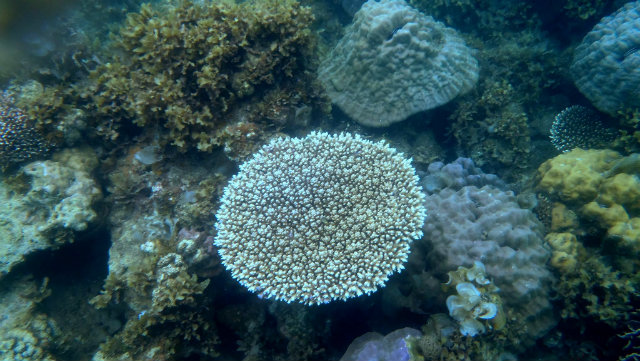SUMMARY
This is AI generated summarization, which may have errors. For context, always refer to the full article.
 We make this clarion call for Palawan today, June 5, on World Environment Day.
We make this clarion call for Palawan today, June 5, on World Environment Day.
A strategically-located island province known for its unparalleled diversity of flora and fauna, Palawan has a pristine environment and abundant natural resources that could supply the needs of its denizens for generations to come.
Today, Palawan is beset with serious inter-connected environmental threats, making it a battlefield where economic and political interests are waging a war over its economic and geopolitical value.
Mining in paradise
A 15-megawatt coal-fired power plant is stubbornly being pushed by DMCI Power Corporation in the town of Aborlan, threatening the island’s forests, agricultural lands, and fish sanctuaries with toxic air pollution and hazardous waste water.
Amid massive opposition, DMCI’s coal power plant was defended by President Benigno Aquino III, citing the need for the cheap base load electricity it can provide while ignoring all its serious environmental, health, and social costs.
Will the coal power plant’s power production benefit the homes of Palaweños? (READ: Palawan’s plans for renewable energy)
Apparently, a nickel processing plant that large-scale miner Citinickel intends to construct this year is aiming to eat up at least 10 megawatts of that. Do we benefit from their massive extraction of our nickel ores?
The thousands of metric tons of minerals it unearths are immediately shipped off to Australia, Japan, and China.
Big mining in Palawan has been documented over the past years to have engaged in irresponsible operations that have stepped on the rights of indigenous people, violated environmental laws, and resorted to land-grabbing against staunchly opposed communities.
I personally witnessed this in 2012, on an environmental investigative mission in areas of Sofronio Española town affected by Citinickel.
US bases, militarization

Who can forget the destruction caused by the grounding of the US Navy’s minesweeper Guardian over 2,300 square meters of precious coral reefs in the Tubbataha Reef Natural Park? (READ: Tubbataha repair will take years)
More than a year after the USS Guardian damaged the world heritage site, United States authorities still have not compensated PH for the damages it inflicted, and the Philippines have not penalized any of the warship’s crew. (READ: US yet to pay P58M Tubbataha fine)
A de facto US naval base is being constructed in the resource-rich, picturesque, and marine-protected Oyster Bay, under the auspices of the railroaded Enhanced Defense Cooperation Agreement (EDCA) between Aquino and US President Barack Obama.
Base construction and subsequent heavy military activity in the area will most likely worsen the degradation of Ulugan Bay’s ecosystems and displace thousands of fisher folks in the entire Ulugan Bay, within which Oyster Bay is located.
The plunder of sea turtles and other marine wildlife in the West Philippine Sea by a possible Chinese-Filipino poaching syndicate have stoked tensions in the contested waters. (READ: Poaching in Palawan)
It has been used by Aquino and the US as pretext for heightening destructive military presence in Palawan, while Beijing seems bent on perpetuating it as an expression of sovereignty.
Either way is a bane to Palawan’s marine environment.
Protect Palawan
Big business and foreign interests are clearly at the core of Palawan’s environmental problems, as we have seen time and again in various other issues that imperil all our lands and seas.
Indeed, Palawan is not just about Palawan. Its plight is a microcosm of the current crisis of the Philippine environment.
Likewise, the victories of its people’s struggles are success stories that communities across the Philippines can learn from.
There are plenty of ways we can take on the polluters and plunderers of Palawan.
You can join us on June 12 as we mark Independence Day with a protest action along with various other groups against the return of US bases in the Philippines.
You can learn more about the people’s alternatives to the current mining regime by reading up on House Bill 171 or the People’s Mining Bill, filed earlier last year by the Makabayan bloc in Congress.
International climate action network 350.org hosts a petition that we can support calling for the stoppage of the coal power plant in Palawan.
The thousands of actions world-wide on World Environment Day demonstrate to us the power of collective action. Imagine what thousands of advocates can do to protect Palawan.
Imagine what millions of Filipinos can do to change our nation. – Rappler.com
Leon Dulce is the campaign coordinator of the Kalikasan People’s Network for the Environment. The group joins the world in commemorating World Environment Day, celebrated every year to raise global awareness and take positive action on environmental issues.
Add a comment
How does this make you feel?
There are no comments yet. Add your comment to start the conversation.